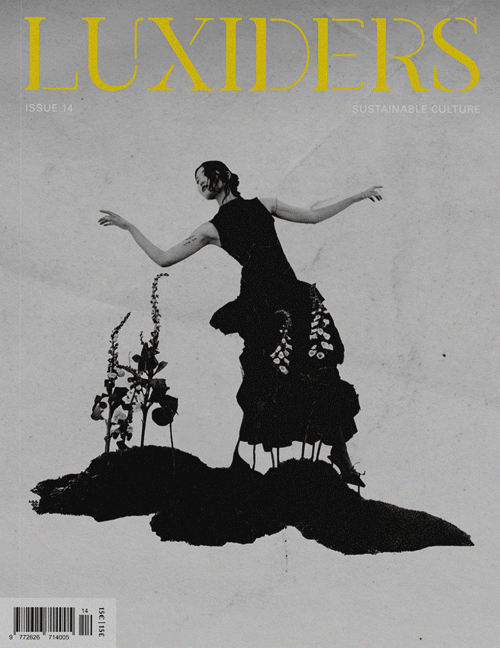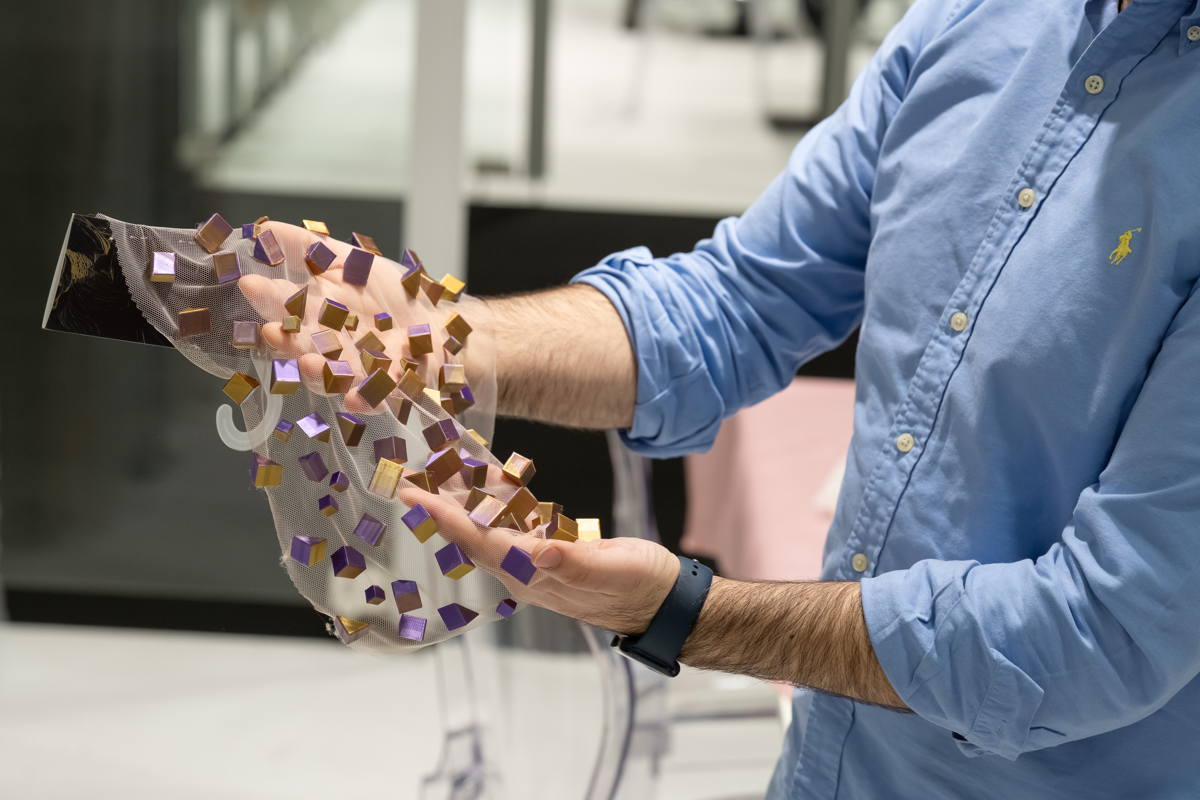
The diversification of Texworld Apparel Sourcing Paris attracts more buyers
The return to Le Bourget Exhibition Centre from February 2025 –remaining at Porte de Versailles during the summer editions–; the diversification of the offer, including jewelry, bags and other products; and the focus on eco-responsibility in conferences and showcases, made Texworld Apparel Sourcing Paris more attractive to the fashion buyer. During the first day, the show boasted a vibrant atmosphere in the aisles, purchase orders being signed at the stands, and conferences closely aligned with the emerging eco-responsible regulations in the European Union.
A Global Hub for Fashion’s Future
Texworld Apparel Sourcing Paris once again proved its position as a key global sourcing event, gathering over 1,200 exhibitors from 25 countries at the Paris-Le Bourget Exhibition Centre from February 10 to 12. This year’s edition showcased an unparalleled diversity of textiles, manufacturers, and cutting-edge innovations, all while addressing the crucial challenges of sustainability and responsible sourcing.
The exhibition served as a melting pot for international buyers, connecting them with suppliers from leading textile hubs such as China, Turkey, India, Korea, and Pakistan, while also highlighting emerging players from Africa, South America, and Europe. Notably, Ethiopia, Rwanda, Egypt, and Benin brought forward textile expertise from the African continent, with the introduction of Argentina’s Industrias Textiles Frione —which offers a range of top-quality fabrics while promoting manufacturing processes that are particularly environmentally friendly—marking a milestone in the event’s expanding reach.
Econogy and Sustainability Take Center Stage
With sustainability at the forefront of industry discussions, Messe Frankfurt introduced the Texpertise Econogy Hub, a space dedicated to eco-conscious innovation. The Econogy Tours guided attendees through exhibits of certified manufacturers pioneering responsible textile production.
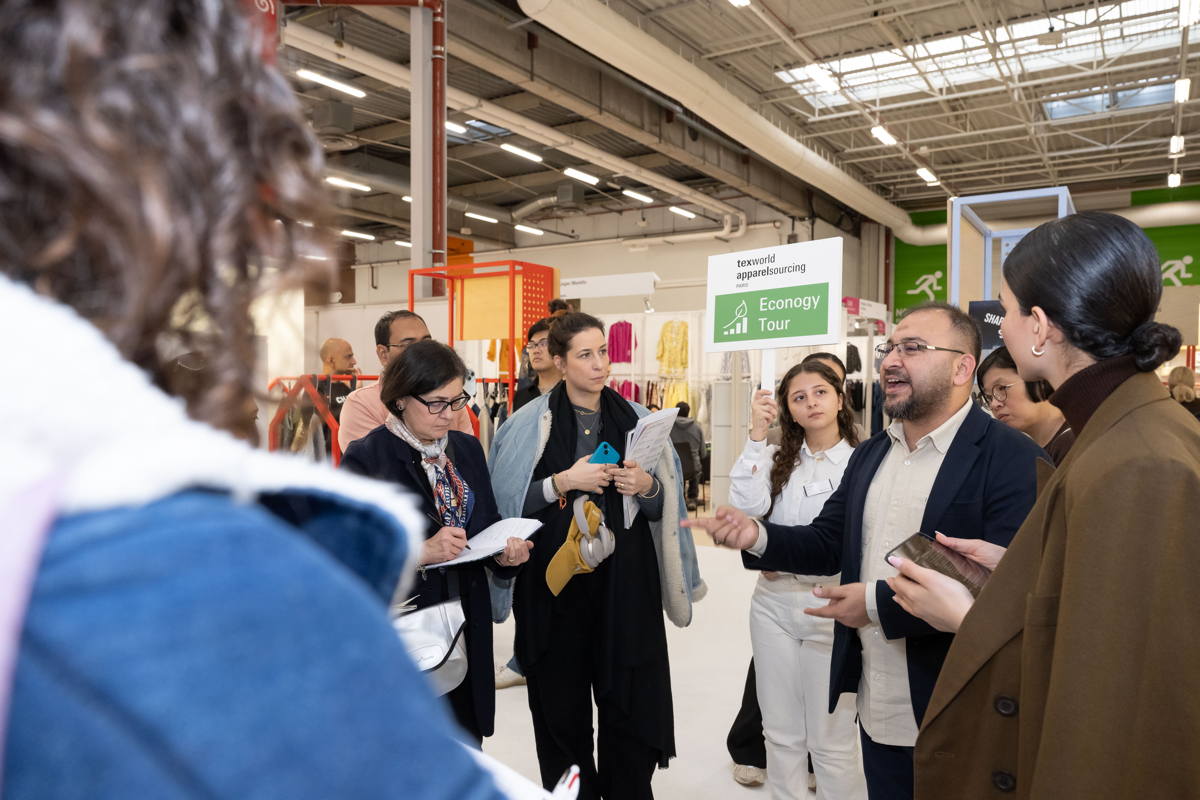
The Econogy Tours were very interesting again. In them, we jumped into a future where we can see how the textile industry evolves, through innovative materials, ethical production models and and forward-thinking technologies aimed at reducing resource consumption, promoting circularity, and meeting the demands of conscious consumers. From organic, naturally pigmented cotton to water-saving non-denim fabrics and Africa’s rise as a sustainable manufacturing hub, the sector is moving toward a greener, more responsible future.
The work of the Econogy Tours organizers is essential for both buyers and journalists, as it guarantees the presence of an independent, research-driven body within the fair—one that thoroughly verifies whether a company or product is genuinely eco-responsible. In an era where many companies promote eco-certifications and others engage in greenwashing, this role is more critical than ever. The numbers speak for themselves: out of 1,200 exhibitors, only 47 earned the Econogy symbol, representing just 10% of the total, while most of the exhibitors were showing big displays with certifications, “eco-friendly” and other green claims. This underscores the importance of rigorous verification in distinguishing truly sustainable brands from mere marketing claims.
One of the most talked-about innovations was Ackala Cotton, an organic alternative requiring no dyes or chemicals, offering a breakthrough in responsible textile manufacturing.
Japanese manufacturer Toyoshima captivated visitors with its fusion of traditional craftsmanship and modern eco-friendly techniques, showcasing non-denim materials that use 90% less water. Meanwhile, Benin’s GDIZ garment manufacturing hub demonstrated how Africa’s textile industry is scaling sustainability through locally produced, farm-to-fashion solutions.
Deyao Textile stands out for its commitment to traceability and transparency. The company operates with a highly efficient water treatment system, recycling and reusing 80% of its water while sourcing 50% of its energy from solar power. “Sustainability is about accountability. Our blockchain technology ensures full traceability of every material used,” a Deyao spokesperson explained. Deyao is a licensed partner of CleanKore, a patented sustainable dyeing method. The company’s certifications include: GRS (Global Recycled Standard), OCS (Organic Content Standard), Regenagri, Canopy Green Shirt Program, BCI (Better Cotton Initiative), Oeko-Tex 100 and ZDHC.
As a leading innovator in sustainable denim, NZ Denim focuses on energy efficiency, water conservation, and circularity. “We are pioneering low-impact denim solutions by combining recycled and organic materials with advanced water-saving dyeing techniques,” said an NZ Denim representative. The company’s eco-commitments include water recycling technologies to reduce overall consumption; low-water dyeing methods to minimize environmental impact; and Certified sustainable materials, including GOTS, GRS (Global Recycled Standard), BCI, Oeko-Tex Standard 100, and ZDHC (Zero Discharge of Hazardous Chemicals).
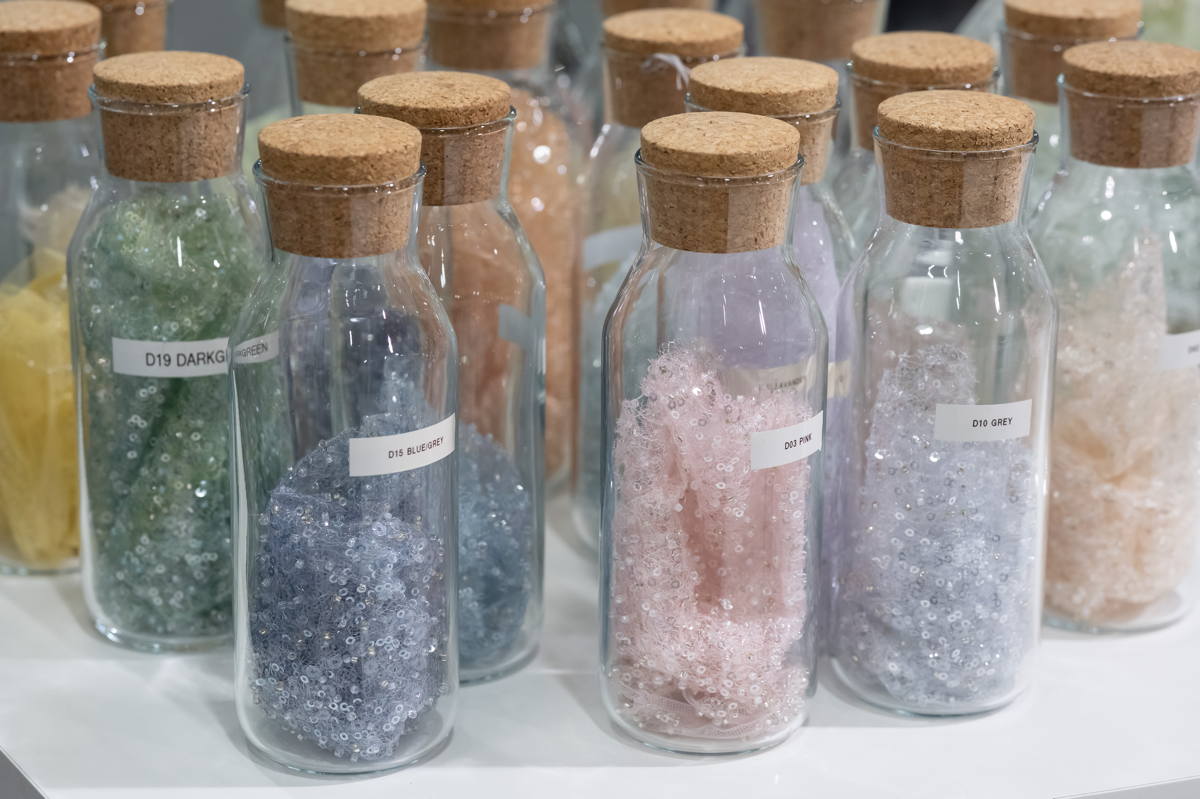

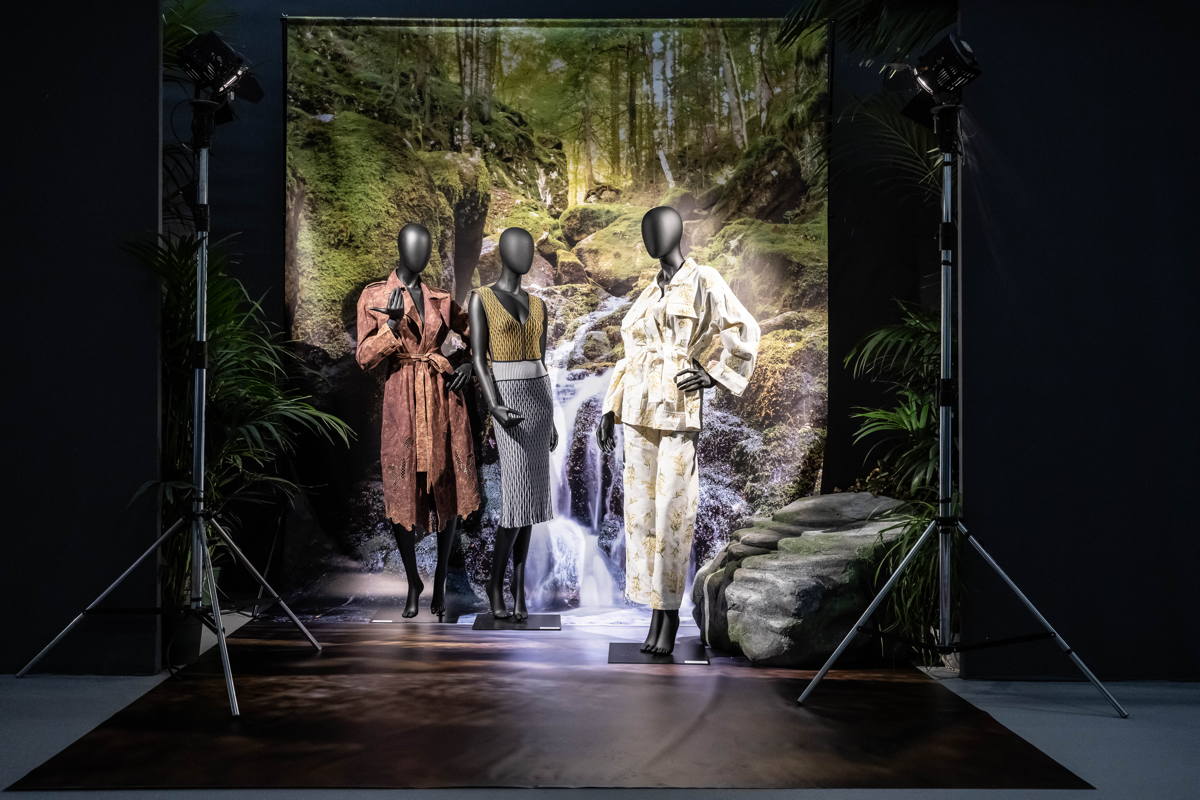
The future of sourcing at the Textile Conference
As the textile industry grapples with the environmental impact of conventional production, innovative solutions are emerging to redefine the sector’s future. At a recent industry conference, experts and manufacturers presented cutting-edge materials and strategies aimed at reducing resource consumption, promoting sustainability, and meeting the changing demands of global consumers.
Ackala Cotton: The Evolution of Denim
One of the most groundbreaking developments in Texworld is Ackala Cotton, a responsible alternative to conventional cotton, which is notoriously resource-intensive. “Ackala Cotton is 100% organically grown and inherently soft. Since it is naturally colored, it requires no water, chemicals, or dye during the fabric manufacturing process,” explained Mr. Najam Us Saquib, a leading voice in Ackala. Historically, Ackala cotton cultivation dates back over 5,000 years, with early varieties grown in South and Central America, as well as Africa and Asia. Ackala Cotton represents a return to these ancient, naturally pigmented varieties, but with modern sustainability improvements.
Ackala Cotton is particularly significant in the denim industry, offering a naturally pigmented brown color without requiring synthetic dyes. “The pigmentation of the cotton depends on the land it grows on” – he added. It won’t be as widely available as conventional cotton and will be slightly more expensive.
Japanese Craftsmanship Meets Modern Innovation
At Booth 3F377, Japanese textile giant Toyoshima, established in 1841, showcased its dedication to blending traditional craftsmanship with modern technology. Ben Kageyama, a representative from the company, emphasized their commitment to sustainability through innovative materials.
Toyoshima’s non-denim fabrics use 90% less water than conventional alternatives. “These fabrics are printed instead of traditionally dyed, which significantly reduces water consumption,” Kageyama explained. Additionally, the company highlighted Wonder Shape, a highly functional, circular knit material that mimics the appearance of woven textiles while maintaining superior flexibility and durability.
Africa’s Role in the Future of Sustainable Fashion
Africa is becoming an increasingly important player in sustainable textile production. Mr. Nikhil Gandhi, Executive Director and Chief Business Officer at Arise IIP, presented GDIZ-Benin, a vertically integrated farm-to-fashion manufacturing center designed to provide ethical garment production.“Africa produces 7% of the world’s cotton, with Benin and Togo emerging as key locations for sustainable cotton production,” Gandhi said. “Our models adhere to the highest sustainability standards, and we’ve already created 30,000 jobs in these regions.”
A major highlight was Pink Mango, a preferred African manufacturer for sustainable global brands. Pink Mango specializes in outerwear and technical jackets, with operations based in Rwanda. They recently announced a strategic partnership with China’s number one garment exporter to the EU, a Fortune Global 500 company founded in 1996.
The Shift in Consumer Behavior: Generation Z & Circular Fashion
M. Jean-Baptiste Andreani, Director of IFA Paris, presented key findings from a study involving over 150 students about their shopping habits. He emphasized the rise of second-hand shopping and circular fashion among Generation Z. “Most of them buy from online second-hand platforms like Vinted or from boutique thrift stores. They understand the meaning of circular fashion,” Andreani noted.
However, a challenge remains: while many young consumers want to make sustainable choices, price remains a barrier. “When asked whether their purchases align with their values, 30% said ‘not enough.’ Why? Because they feel they don’t have the budget to buy what they truly want,” he explained.
He stressed the importance of psychological messaging in pricing strategies, helping consumers understand the true impact of their purchases. “We need to communicate the environmental impact of every product—such as the CO₂ emissions saved—so that consumers can connect their choices to real-world benefits.”
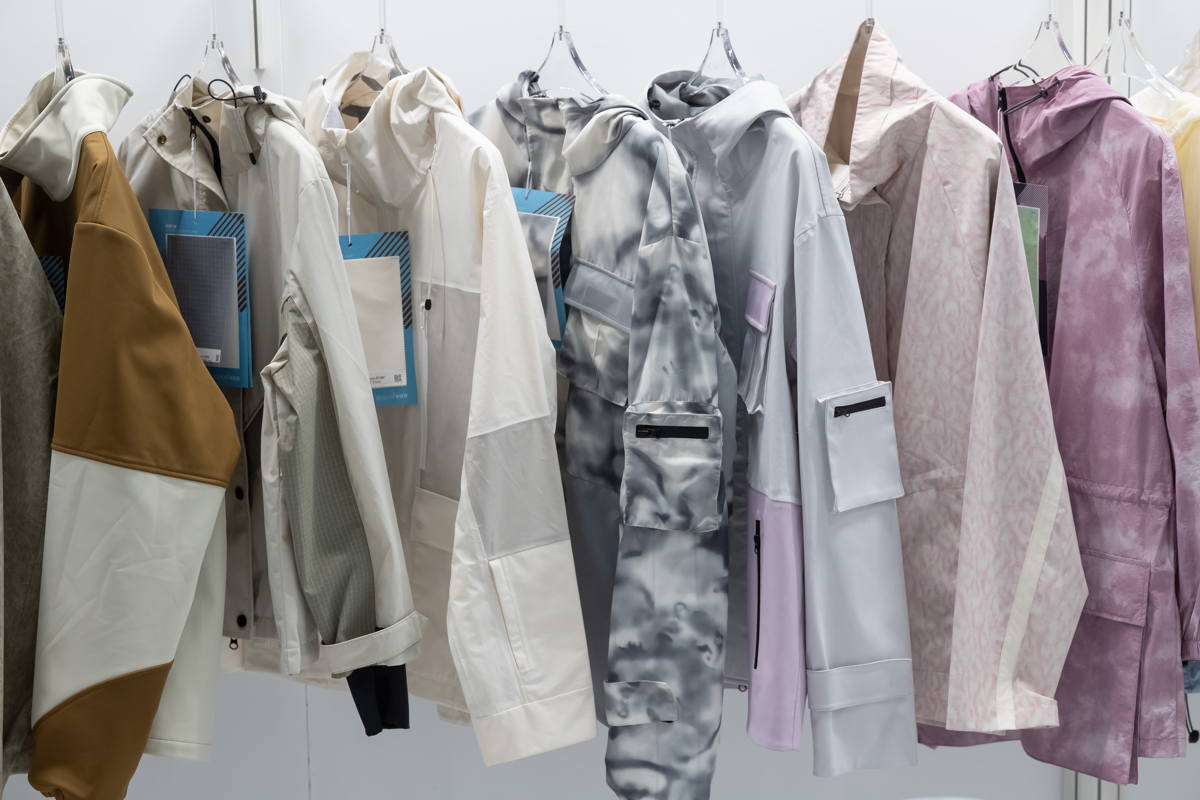
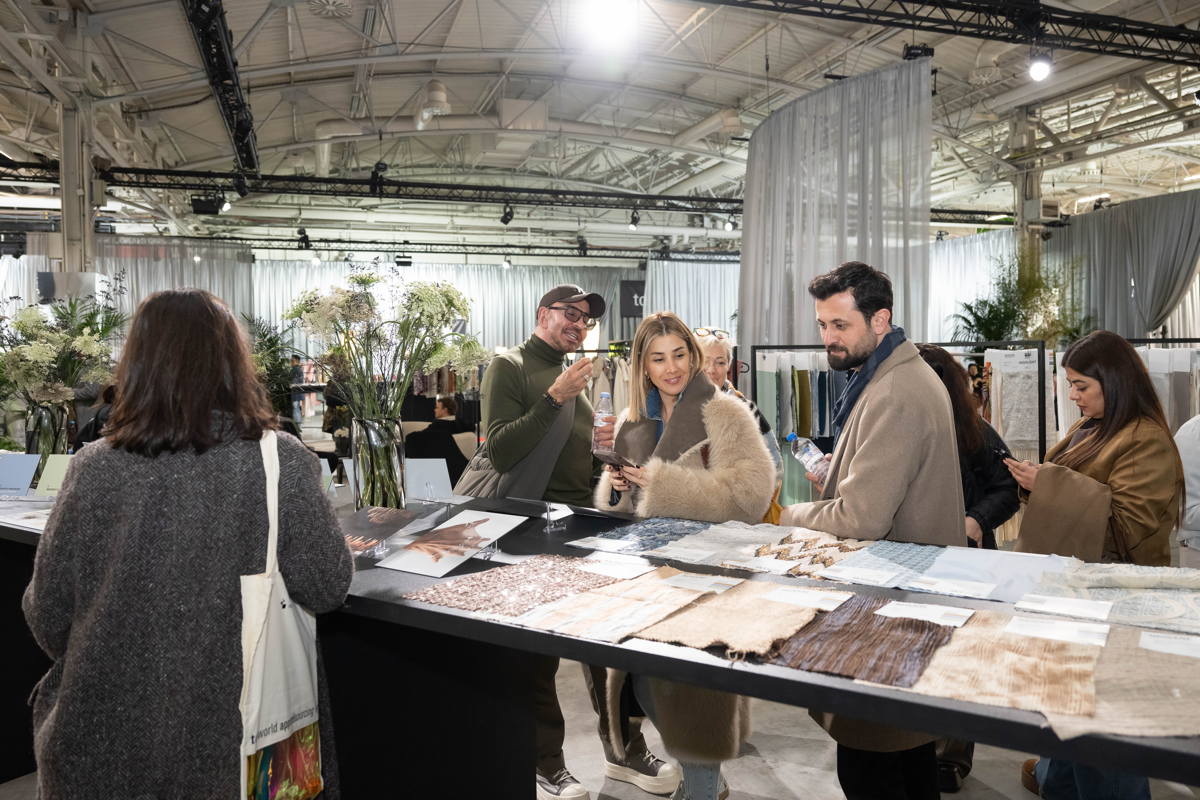
The Trends
Beyond textiles, Louis Gérin, the artistic director of the show, presented Neocene, the trendbook for Spring-Summer 2026, emphasizing a shift towards optimism, holistic design, and a more symbiotic relationship between fashion and nature. The conferences tackled pressing topics, from the psychological factors behind fast fashion consumption to the rising influence of Gen Z and their commitment to second-hand shopping and circular fashion models.
“Creation today can no longer be defined solely by colors and silhouettes—it is everything. We have all the colors, all the materials,” he underlined. “We are entering a new era—a rainbow of colors to help reveal the truth. The difference between AI and reality is becoming increasingly blurred. Yet, we must remain optimistic, even as we recognize the deep darkness within our context.
“Tomorrow, this unwritten future.”
